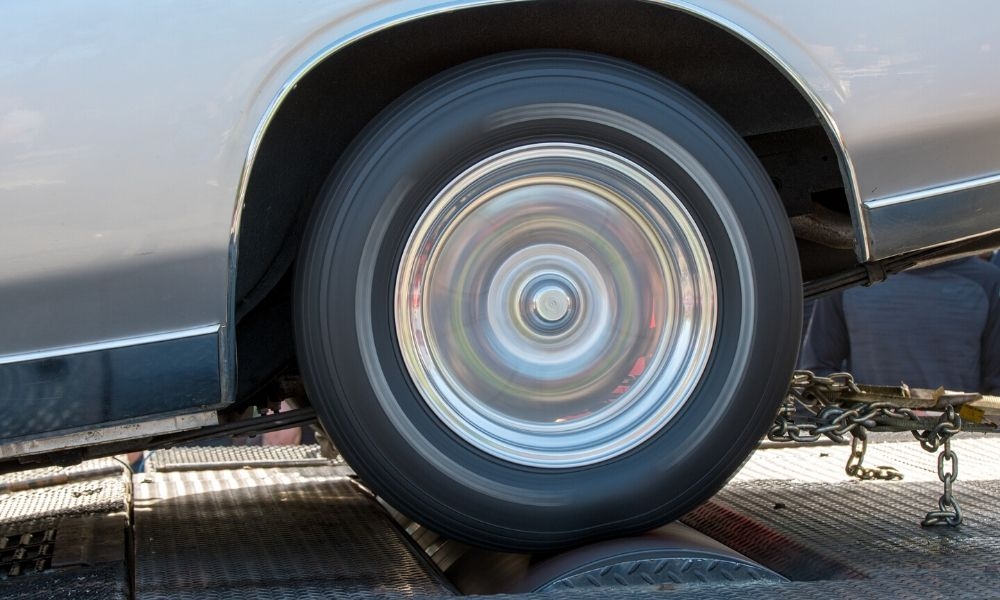
It seems surprising because wheels are such a critical part of your car’s performance and safety, but currently, there are no mandatory standards for wheel performance and testing in the United States. However, the Society of Automotive Engineers has established standards for performance for aftermarket wheels, called SAE J 2530. Aftermarket manufacturers recognize the importance of J 2530 certification as a mark of quality.
What J 2530 Means
This quality and testing standard set forth performance and testing guidelines, including sampling parameters, for aftermarket wheel manufacturers. It addresses:
- The stresses and force inflicted on a wheel when cornering
- The stresses and force exerted by the load the vehicle carries
- The effects of impact on the wheel—like hitting a curb or a pothole
The standard requires that wheels be subjected to a defined number of cycles and load settings based on the size and style of the wheel. This ensures that tests run a sufficient number of cycles at sufficient loads to truly test the performance of the wheel and its design.
A manufacturer can use its own lab or contract with an external testing facility as long as they have, or their test facilities use, the right kinds of machines for the three types of testing. The tests include:
- Radial: this test stresses the metal in the rim section of the wheel—the critical part of the wheel structure that holds the tire on—and the spokes, simulating the compression and release of the load the vehicle carries.
- Cornering: tests the hub and the center of the wheel (the sections that undergo the most stress while the car is in motion) by simulating cornering where the wheels are under the greatest turning forces.
- Lateral: this is the impact test to simulate performance in the event of bumping into a curb or hitting a pothole. The wheel should be able to withstand the defined impact without cracking or breaking.
These tests confirm the importance of J 2530 because they can identify flaws in a wheel’s design or materials that the manufacturer can work to correct before putting the wheel on the market. Compliance indicates a manufacturer’s dedication to quality, safety, and consumer satisfaction.
We’d also like to note that there are other standards to be aware of. In Japan, the Japan Light Alloy Wheel standard (JWL) sets requirements for alloy wheels for all passenger cars, and the Vehicle Inspection Association of Japan (VIA) test wheels for compliance with JWL. For example, if you’re looking for replacement 2014 Nissan Altima Rims, check for the JWL certification. Another applicable standard is ISO 9001—a quality assurance standard that manufacturers use to demonstrate that their quality management system results in products that meet regulatory and customer expectations reliably and consistently.


